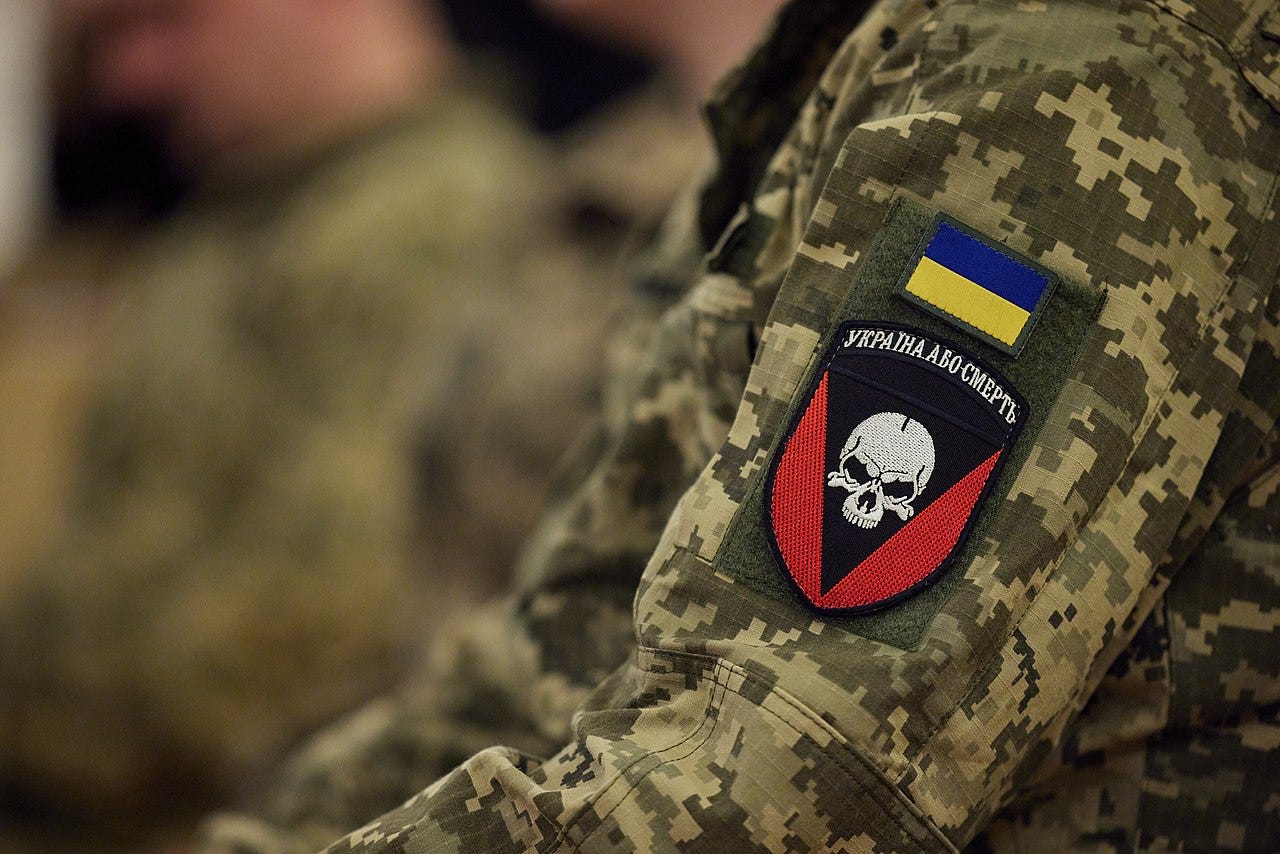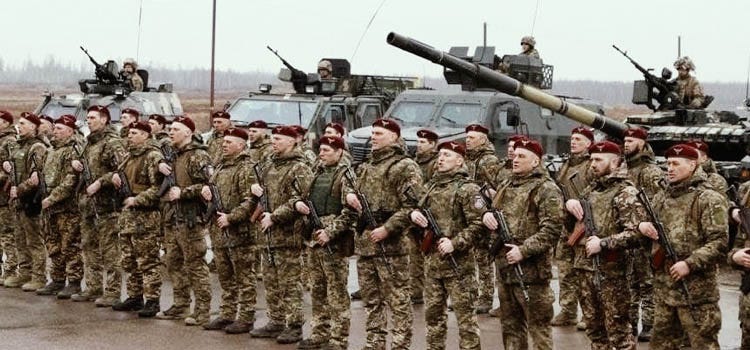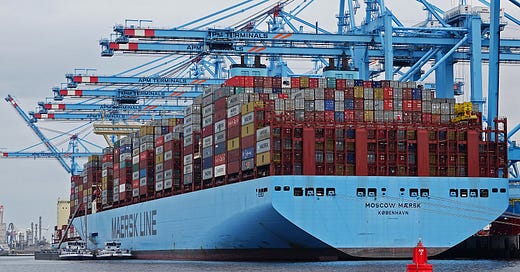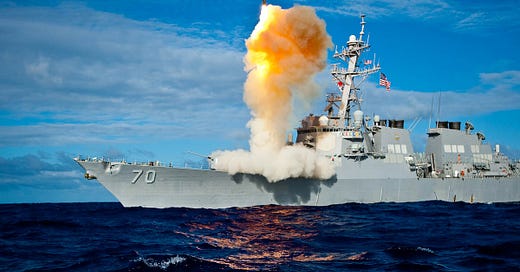
Discover more from Weapons and Strategy
1. There are multiple fronts in the war but an immediate major change is in the works for Vuhledar. Vuhledar, is a town in Volnovakha Raion, Donetsk Oblast, in eastern Ukraine. It was an important logistical and supply hub for the Ukrainian army. The Russian forces have now effectively surrounded the town and trapped the Ukrainian 72nd Mechanized Brigade inside. The Russians have dropped leaflets telling the Ukrainians they either must surrender or face destruction. The leaflets provide a means for the Ukrainians to contact the Russians to arrange for a surrender and have been promised medical and other necessary assistance. A "large number" of Ukrainians have already surrendered.
According to the 72nd, they have received no orders to withdraw from the town, but in any case it is now too late. Apparently Zelensky did not want to lose Vuhledar (and other battles) during his trip to the US. He is meeting with Donald Trump today (27 September) in New York at Trump towers.
2. There are significant Russian battlefield gains elsewhere including Pokrovsk, Chasiv Yar and Kupyansk, although in the case of Kupyansk the Ukrainians say that they stopped a heavy Russian armor attack. The Ukrainian claim has not been confirmed and there is not any video yet demonstrating that the Russian armor attack has been blunted.
3. In Kursk there is a highly significant development. The Kursk salient is on Russia's territory. Ukraine's operation in Kursk is led by its powerful 82nd Assault Brigade that is heavily equipped with equipment from NATO including tanks and IFVs. It is suffering significant attrition that has been increased by frequent, but failed, efforts to launch counter attacks against the Russians. Now there is word that the 82nd is being pulled out of Kursk and replaced by an unnamed territorial brigade. This "rotation" means that the 82nd is being preserved either to be thrown into the battles in Donetsk or, more likely, kept back for the protection of Kiev if the Russians achieve a major breakthrough beyond the boundaries of the Donetsk region.
Two conclusions can be drawn from Kursk. The first is that the Ukrainians will soon be pushed out of the Kursk region and will have paid a very high price for the operation. That price is more than the heavy loss of elite manpower and much equipment. It also took away critical resources from the various battles in the Donetsk region.
The second conclusion is that Zelensky and Syrsky, his somewhat loyal army leader, are going to suffer significant criticism as the Kursk operation is recognized as a tactical and strategic blunder and failure. A defeat in the next few weeks, which seems more and more likely, could spell the end of Zelensky's government, or minimally another major leadership shakeup.
Zelensky
Zelensky's trip to the US did not result in any pledge of long range weapons to strike Russia, nor did it result in any pledge of air or ground support for Ukrainian troops. The Biden $8 billion support package is a furtive effort to make Zelensky look good, but in reality it is divorced from any concrete change in weapons deliveries to Ukraine. It can be read as an attempt to bolster Zelensky (something Washington may soon regret) or to bolster Biden's image.
There are reports that the CIA and Pentagon have told the White House that they fear a Russian response should long range weapons be authorized to Ukraine for deep strikes in Russia. The Russians have made it perfectly clear that long range weapons supplied by the US or Europeans (UK, Germany, France) are solely operated by NATO personnel and targeting is provided by NATO intelligence assets. Also Washington now understands that Russia has changed its nuclear doctrine to account for any attacks on Russia. For some time NATO/Ukraine has been playing chicken with the Russians by trying to strike Russian nuclear power plants and Russian strategic nuclear assets (including strategic long range radars part of Russian's defenses against nuclear attack), such as long range Russian nuclear bombers on bases inside Russia. The Russians have now drawn a red line that Washington's intelligence community thinks is credible. There is a risk that Zelensky may try to launch such attacks anyway, using "heavy" jet powered drones which are under Ukraine's full control. This would render Zelensky a rogue actor and an exceedingly dangerous one.
As I have noted elsewhere, Biden wants the war in Ukraine to continue until after the November elections so that his reputation remains intact, or so his backers think. If Harris wins, she will face a certain defeat in Ukraine under current conditions.
In terms of some diplomatic deal, this seems unlikely for the Biden administration which, in any case, will not be taken seriously by the Russians. I suspect, but cannot prove, that the administration has probably been trying to talk the Russians into a ceasefire, but have not offered anything to the Russians attractive enough to lead to any change. From my perspective, the Russians want a NATO defeat even more than they want to get rid of the current Ukrainian government.


















Isn't it amazing how often the Ukrainian army has been pushed into a cauldron? It's almost like they can't live without being trapped in a pocket. Clearly Zelebsky doesn't care either, if it happens. He fights for show while the Russians fight a real war.
The US does not want to keep the war running until the election. The US wants to keep the war out of the headlines ahead of the election.
I note that many are assuming the US has accepted defeat and will manage the politics of this defeat after Trump is gone. I think this is entirely backwards. The US will not ever under any circumstances accept a defeat in Europe.
The most likely outcome is that the US escalates both with China and Russia and Iran after Trump is gone. Trump is the final, last, never-happening-again threat to the regime consensus with regard to War and Peace. When he's gone, the messianic weirdos are fully in charge and the US will try and run the table.